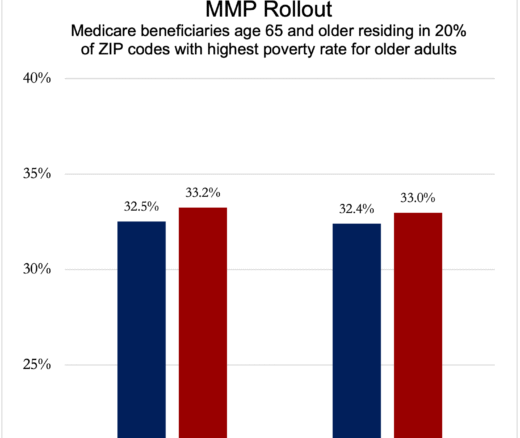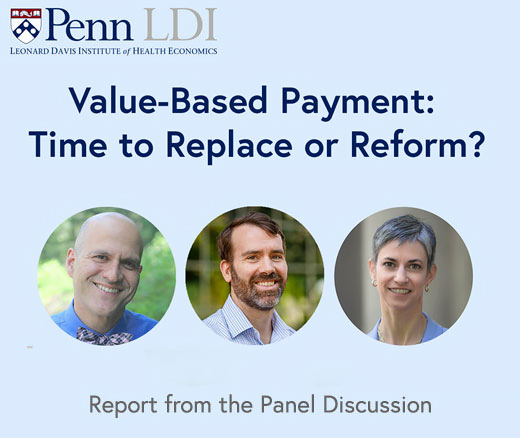
Integrated Care Plans Didn’t Boost Medicaid Enrollment for the Poorest Seniors
Chart of the Day: Medicare-Medicaid Plans—Created to Streamline Care for Dually Eligible Individuals—Failed to Increase Medicaid Participation in High-Poverty Communities
Improving Care for Older Adults
Kevin Volpp, LDI Senior Fellow and Professor at both Penn’s Perelman School of Medicine and the Wharton School, has been named a 2022 Distinguished Scientist by the American Heart Association (AHA). The award honors researchers who “have significantly advanced the understanding of cardiovascular, stroke or brain health.”

The ceremony honoring Volpp and the six other AHA 2022 Distinguished Scientists will take place at the organization’s three-day November Scientific Sessions meeting in Chicago.
Volpp, MD, PhD, is the founding Director of the Center for Health Incentives and Behavioral Economics (CHIBE) and the Health Policy Division Chief for Perelman’s Department of Medical Ethics and Policy.
The AHA award is based on Volpp’s research “for developing the science of application of behavioral economics to health care settings.” Among other contributions, his research found that patients who received a monetary incentive to quit smoking had three times the success rate of patients who did not receive an incentive. His work has led to benefit design changes by a number of employers and insurers as well as shifts in program offerings by large consumer companies to facilitate health. He also helped lead the creation of the world’s first health system based ‘Nudge Unit’ and the development of the Penn Way to Health software platform, which automates the conduct of randomized trials of behavioral interventions and has been used in hundreds of studies by investigators at more than 20 universities.
The award committee noted that Volpp is also a cardiac arrest survivor, which has added unique depth and perspective to his work.”
Over his career, Volpp has competitively been awarded more than $98 million to lead or co-lead studies funded by the National Institutes of Health (NIH); the Center for Medicare and Medicaid Innovation (CMMI); the Centers for Disease Control and Prevention (CDC); VA Health Services Research and Development; Robert Wood Johnson Foundation; the Hewlett Foundation; the Commonwealth Foundation; the Aetna Foundation; Mckinsey; CVS Caremark; Horizon Blue Cross Blue Shield; Hawaii Medical Service Association; Merck; Humana; Aramark; WW; and Discovery (South Africa).

Chart of the Day: Medicare-Medicaid Plans—Created to Streamline Care for Dually Eligible Individuals—Failed to Increase Medicaid Participation in High-Poverty Communities

Penn LDI Debates the Pros and Cons of Payment Reform

One of the Authors, Penn’s Kevin B. Johnson, Explains the Principles It Sets Out

Six Lessons the U.S. Can Learn from Europe About Protecting Health Data Linkages

Moving from Fee-for-Service to Risk-Based Contracts Hasn’t Dramatically Changed Patient Care, Raising Questions About How to Make These Models More Effective

Equitably Improving Care for Hospitalized Kids Who Experience Cardiac Arrest Requires Hospital-Level Changes, LDI Fellows Say